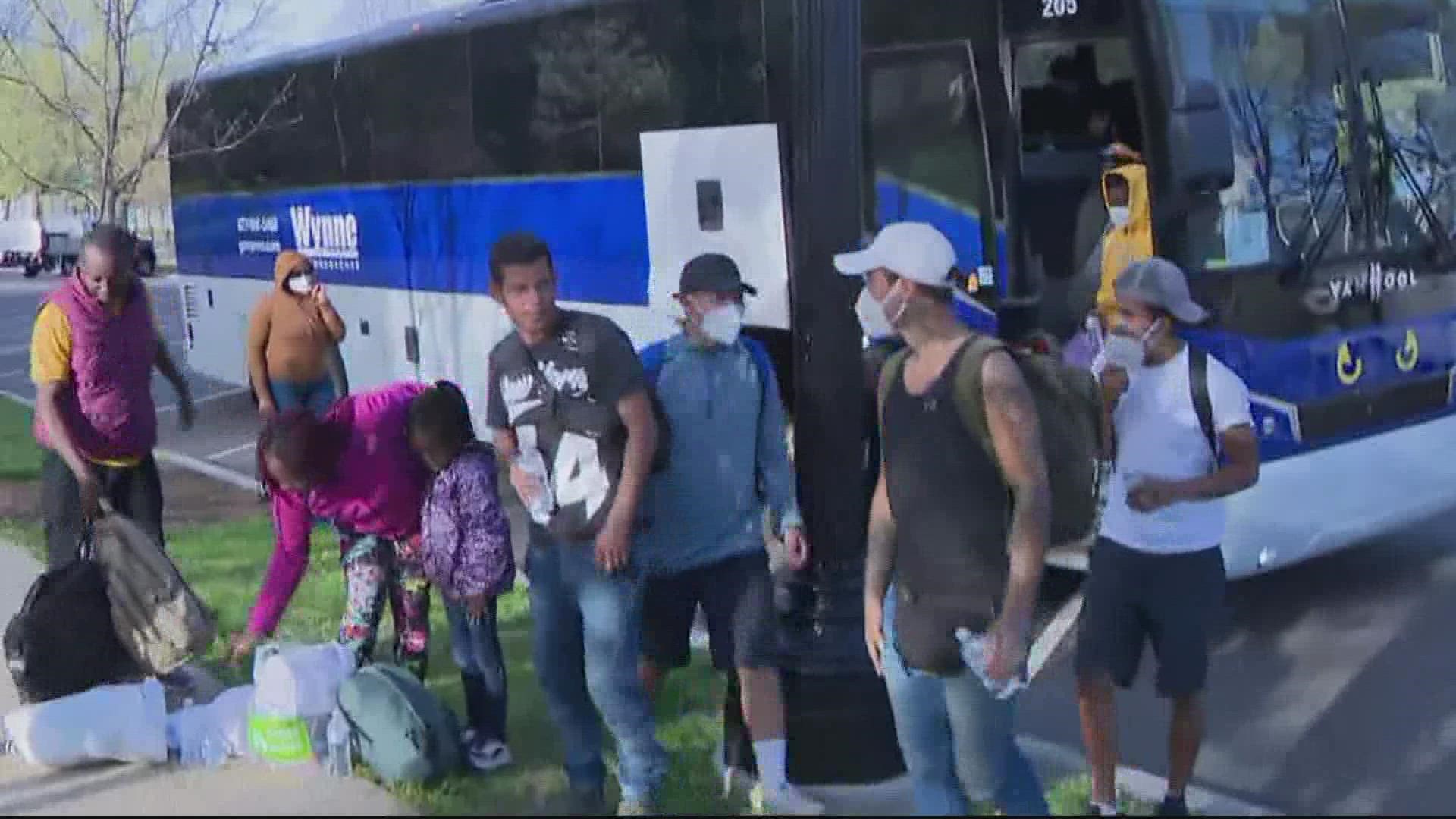WASHINGTON — A young couple made the long and difficult journey from Cuba to start a new life in the U.S. -- but without the help of volunteers in D.C., they say they wouldn't have a roof over their heads.
They arrived to the District like thousands of other migrants have over the last few months -- on a bus dropped off at Union Station.
“They didn’t give us food, they didn’t give us clothes. No they didn’t help us," a young woman said in Spanish. "They didn’t tell us how to put a roof over our heads."
She and her husband asked WUSA 9 to protect their identities as they work to build a life here. They plan to stay in the DMV, since they have no family in the states.
They traveled all the way from Cuba -- through Nicaragua -- through Mexico -- for a better opportunity.
“All I want is to work, find my own job where I know every day I’m going to come back to a happy home," he said.
The couple said back in Cuba, there is little freedom, and it's a daily struggle to put food on the table.
They wanted a better life -- for them and their baby girl -- to whom she could give birth to any day.
They are grateful that the Migrant Solidarity Mutual Aid Network connected them with Mara.
“I'm not even religious or Christian. But just looking at her and him, I was reminded of that story, the nativity story and how there was no room at the inn," Mara, who volunteers with the network, said. "And I was just, there's going to be room at this inn.”
They have been staying with her for two months.
“I said, I have a heart and I have space in my house. So clearly, I'm going to show up," Mara said. "And really they've been taking care of me just as much as I've taken care of them.”
Mara said their friend has now also come to stay with them.
They've all grown close, and they said they plan to make Mara the baby's godmother.
The Mutual Aid Network said it's been up to them to make sure families like this one don't end up on D.C.'s streets.
A spokesperson said they have poured more than $200,000 of their own funds into helping about 3,400 migrants since April. The governors of Texas and Arizona have been busing them up to D.C. for months.
“Trying to greet people with dignity, because I hope that the same thing would happen to me if I ever needed something like that," Mara said.
FEMA awarded another group, SAMU First Response, a grant to help them help these migrants, but their managing director and the Mutual Aid Network say it's not enough. SAMU's managing director Tatiana Laborde said their shelter in Montgomery County only holds 50 people, so it's almost always at capacity.
That's especially the case now, since they're seeing about four buses per day, with up to 250 people total coming in.
Laborde said they're working with D.C. leaders to find a larger space in the city with double the capacity, but that hasn't been locked in yet.
The Mutual Aid Network is calling on D.C. leaders to do more.
“D.C. says that they're a sanctuary city, and they haven't shown up," Mara said.
The group released an updated list of demands on Thursday, that include providing staff capacity, providing respite space for arrivals and offering emergency services.
Thursday night, much of the DC Council penned a letter to Mayor Bowser and her administration with similar demands. In it, the council urged the mayor to use contingency funds to provide services for the migrants, saying they have it in the budget, with the goal of replenishing it with federal funds.
WUSA 9 has reached out to the Mayor's office for comment but has not heard back.
Until these groups get assistance, volunteers like Mara will offer the helping hand.
“Thanks to her, we have a roof now," the young couple said, tearing up.
Councilmember Brianne Nadeau (Ward 1) is chairing a meeting on July 22 before the Council of Governments to figure out how to respond as a region.

